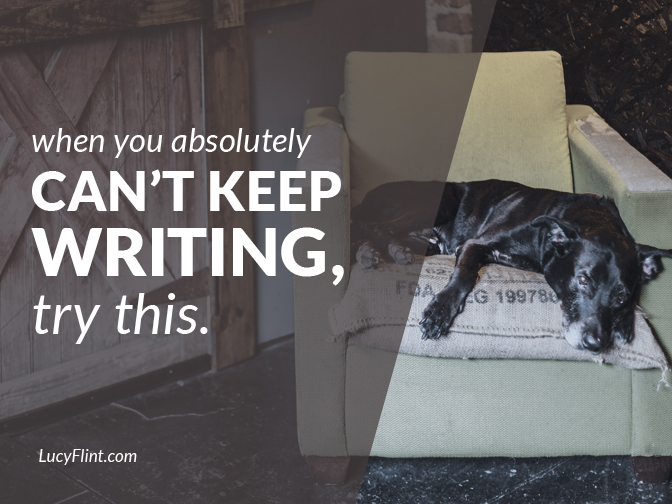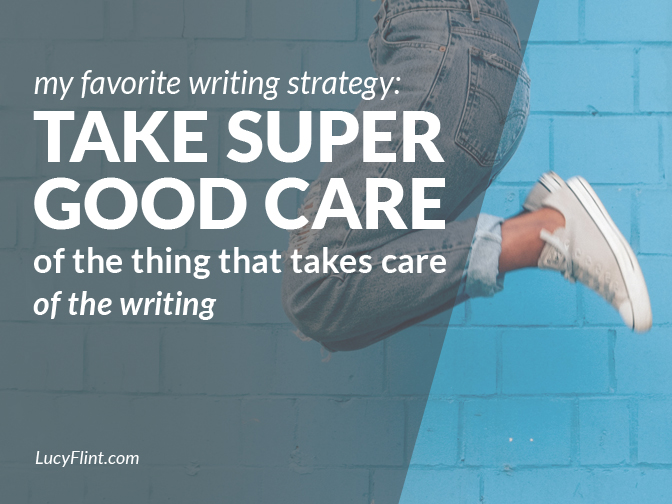Can I Tell You a Secret? No One Really Loses Nanowrimo. (drafts don't Have To "fail.")
/I heard someone once refer to "failed drafts" and it totally weirded me out.
A failed draft? Great, one more thing to worry about.
I thought I might believe that for a while. I looked at some of my works-in-progress like they were actively failing. (This did not make me feel inspired at all, by the way.)
I don't think that any more.
Look. Here's what you need to know today, the final day of Nanowrimo:
Drafts themselves don't fail. They always do exactly what they need to.
Maybe you finished your 50,000 words for Nanowrimo. Maybe you wrote more words than you hoped you could.
Maybe you fell in love with all your characters, and you all just had a huge party together, a wonderful word fest. That is great.
Or maybe you're finishing Nanowrimo by the skin of your teeth, squeaking in this evening with your final word count. You're not sure what you ended up with, and you suspect it might read like cat puke, but heck, you did it.
Or maybe--maybe it wasn't even close.
Maybe you burned out early, or your novel idea fell apart in your hands and you stopped, discouraged.
Maybe Life happened--as it does--and you had million other things to cope with this month, and writing took a back burner. Or even no burner.
And maybe you're bummed, frustrated, and upset with yourself.
No matter who you are, and no matter what happened in November, here's what you need to know:
Your draft, and your experience while writing it, is telling you something. Not just the story (or lack of story), but something about you, the writer, and how you write.
And if you listen to that, and actually learn from it, then you didn't have a failed draft.
Sound good?
Even the crappiest, most miserable draft can bring valuable insights. I promise. And between you and me, I have written some stunningly bad pieces before.
And it's what I learned through those bad pieces that made me a much better (and happier!) writer. Okay?
Here's what I want you to do, especially if you didn't "win," (though you can do it even if you did).
Look at these four questions and come up with at least one answer for each. (All four answers are massively important: no skipping!)
(It would be great and probably more helpful to you if you actually wrote your answers down, but... I'm guessing your wrist and fingers are all burnt out by now.)
Ready? Okay. Think back over your Nanowrimo experience, or over your most recent draft, and answer this:
1.) What was your favorite thing about the story? A character, an image, a moment, a setting? A plot turn? A chapter? A dialogue exchange? What was it?
2.) What was your favorite thing about the drafting process? What went well for you? If you had a single good writing day, or a single good writing session: what was it that made it good?
Okay. Now, be nice and play fair (meaning, no name calling):
3.) What were you less than thrilled with in your story? A character that went flat, a dramatic scene that died, a non-existent setting? Conflict that fizzled?
4.) And what were you less than thrilled with in your writing process? Was there a consistent pattern in the writing days that went belly-up? Something in your environment, mindset, tools, skill sets, or habits that you think sabotaged the work?
Whew! That was some important thinking.
Here's what I've learned through doing so, so many drafts: The draft you learn from is a good draft.
It can be the worst pile of slop: if you honest-to-goodness learn from that thing, then it is a slop pile of gold.
Learning is totally antithetical to failing. If you're learning, you're just not failing.
I'm not being goofy about this: I understand, things can go really, really wrong, and all the learning in the world doesn't change the fact that it is supremely unfun and painful to have something go wrong.
I get that. I really do.
But I also know that when pain and frustration turn into ways of doing it better: That's when those difficult days are redeemed.
So. You've got at least four answers to those four questions? Cool. Here's what to do (and you already were thinking of this, I bet):
Your answer to question one: Your favorite parts of your draft? Lean into those. What you loved in your story--do more of that. Turn up the volume.
If it was a theme, expand it. If it was an image, do more images like that.
Maybe it surprised you a bit. Maybe the thing you loved most is the thing that you didn't think you were going to write about. Maybe it just showed up in the draft, and you fell in love.
Or maybe, you planned for it, and there it was, perfect and happy-making and smiling at you from the draft. Your impulse to write about it was totally confirmed.
However you came across it: I want you to give yourself massive permission to do more of that!!
Same thing goes for your answer to question number two. I'm deeply convinced that it pays to know what makes your writing day run well, and then to do those things, as much and as often as you can.
What can you do to bring more of answer #1 and answer #2 into your writing life?
Okay. Now looking at the answers to #3 and #4:
Obviously, the first thing to say is: let's do less of that!
But I'd like to expand that by saying: Make sure you're really listening to yourself.
If you discovered that you don't like the genre you're writing in, start playing around with a genre that might suit you more.
If your villain absolutely failed to thrill you, think about the antagonists in the stories that you love, and what made them so chilling.
... Typed out, on a screen here in black and white, that seems kind of no-brainerish, kind of obvious, right? Sure it does.
And yet.
I chained myself to a draft I disliked for four years, absolutely failing to see that I didn't like the story, the main character, most of the villains, the side kick, and pretty much the whole shebang.
(I did like the outrageously quirky characters that randomly showed up near the end, but I ignored that.)
I was focused on finishing it, not so much how I felt about it. Essentially, I was working blind.
Which is why your answers to #3 and #4 are so dang valuable in guiding what you do next.
For me? I wrote another manuscript pretty similar to my first one. (I'm not always a fast learner.)
But now--I'm writing a middle grade trilogy that is chock-full of everything I LOVE in stories.
Outrageously quirky characters definitely take a starring role. And every single thing I like is in there somewhere.
But that's only because I finally, finally, let myself figure out what I liked and what I didn't, what drew me in and what repelled me.
I finally let that tell me what to write.
You can save yourself a bunch of time and anguish, and do that right now!
And with your answer to #4: How can you protect your writing life from those things happening again?
Is there a skill you'd love to learn, a class to take? Do you need to change where you work, or make sure you take a walk in the sun now and then, or get lost in a library for a while?
I'd love to challenge you to do this: Answer #4 as deeply and in as many ways as you can, and then set out to learn what you need to, to establish whatever boundaries, to change your office around if you need to.
In short, get every single thing that you need to be the amazing and happy writer that you can be. Please, please, please. That's Priority Number One.
... If you do that, then this could be the most successful draft you've ever written! Even if you just wrote fifty words on it!!
So whatever happened to you in November, whatever happened in your latest draft:
Let it tell you which direction to go. What to do more of, what to embrace. What to let go of, what to seek.
You just might discover a story that's closer to your heart, populated with characters you adore, and fueled by a fascinating conflict.
And you just might renovate your writing process and writing life, so that you're filled with everything you need to thrive as a writer and creator.
You can be gloriously happy with your writing life.
And then, your "failed" draft becomes the most exciting thing: a turning point.
















